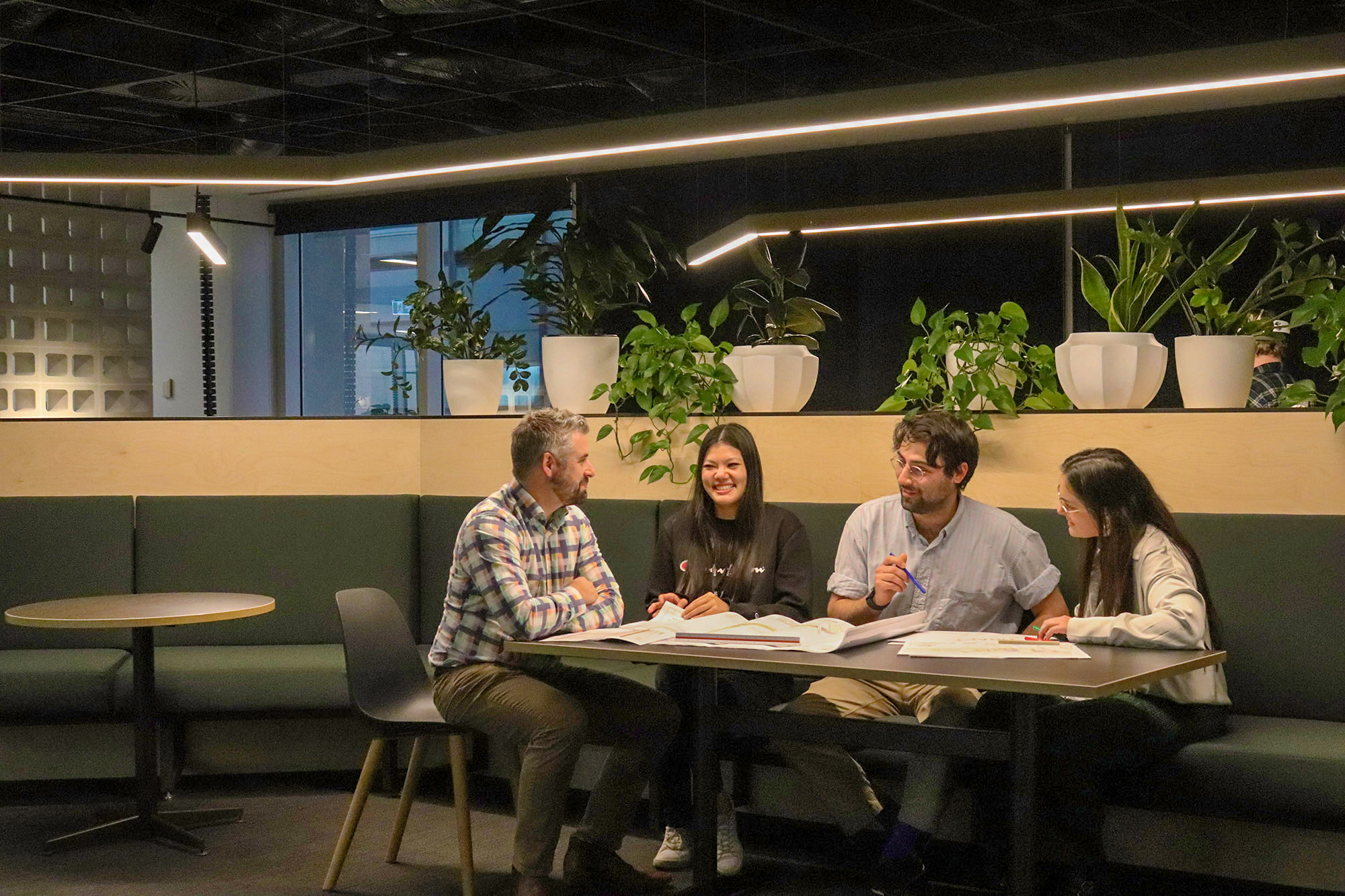Water engineers create lasting impact
Across our network of offices, our water specialists work closely together to share expertise and develop informed and creative project solutions.
View Full Width
One of eight integrated disciplines in the Spiire business, our water engineering team works on a rewarding portfolio of projects throughout their full life cycle, from strategy through to design and delivery.
Our skilled team delivers the full range of water engineering services including integrated water management, urban stormwater management, flood management through to construction consultancy services. Our approach considers the whole water cycle and enables us to deliver sustainable, smart and resilient project outcomes.
The team is motivated by creating a sense of place for communities and the lasting impact of their work on future generations and the environment.
Creating strategic solutions
When Jacob Meehan joined Spiire in 2022, he was excited to explore a different side to projects than he’d experienced through his background in environmental engineering and water resourcing.
“I could see the team was expanding from the traditional service delivery model to actually being part of the development of strategic solutions – I was excited to be a part of that,” he says.
He also felt a strong alignment with Spiire’s purpose of bettering the communities we live and work within. He’s appreciating the opportunity to contribute to projects that make a positive impact, such as a feasibility study for using stormwater to support the potable water supply in the Northern and Western Geelong growth area.
Jacob recently partnered with South East Water to help them understand how they can better embed Integrated Water Management into their planning processes. This was informed by working together with our Town Planning team to provide the client with a really practical tool.
Jacob credits this knowledge-sharing with other disciplines, such as the different perspective offered from close collaborations with our Landscape Architecture team, as enriching his own technical development as well as project outcomes.
It’s part of the embedded learning culture that includes engaging with the wider industry, participating in formal training or spending time connecting with and learning from colleagues.
“It’s very evident that it’s a lived part of the experience and culture. Spiire is invested in your career development,” Jacob says.
Supported to pursue career interests
Kirsten Fearn-Wannan was already working at Spiire when she discovered a passion for water engineering. Having spent five years working in the Civil Engineering team, as a student and graduate engineer, she had worked closely with the water team, and felt drawn to explore her interest further.
“At the end of my Grad Program, I asked to do a secondment into the water team, with the intention of staying for three months,” Kirsten says. “Then I just loved it. I love that there’s more connection with the environment and space for creativity. Now when I go for a walk along the river, I feel proud to know that it’s my job.”
This support for driving her own career progression is one of the things Kirsten appreciates about Spiire’s culture.
“I’ve always felt that it’s a really safe place to learn,” she says. “There’s a real willingness to let people explore and try out new things.”
She has also enjoyed building connections with others throughout the business, which was prioritised as part of the Graduate Program, and continues with backing to forge connections with the wider industry.
“It’s a very social workplace where you can get as involved as you want to,” Kirsten says.
One initiative close to her heart is promoting STEM careers to high school students. Kirsten has presented to several girls’ schools in Melbourne, including her own alma mater, to share why she finds engineering a rewarding career choice.
“I love to think about the labyrinth of all the things that are in the ground that you just can’t see. When I do my job perfectly, no one should ever notice it – except maybe other engineers,” she says. “When it starts raining, I’m the one staring at the drains and the roads, thinking about where all the water is going.”





